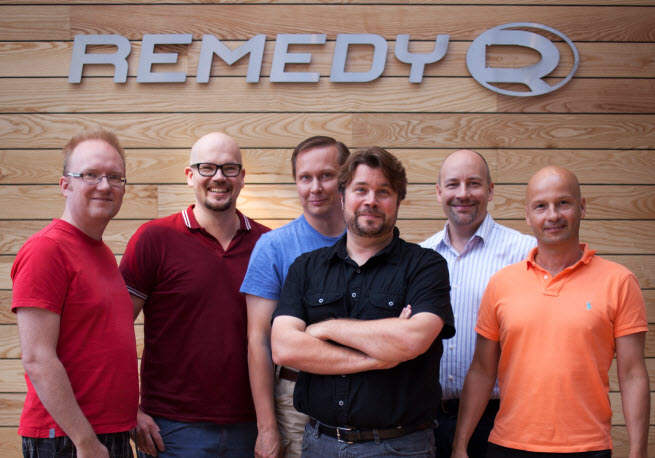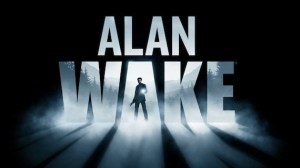GamesBeat: Multiple teams are something that you’re now capable of managing, then.
Myllyrinne: Absolutely. We have a lot of wonderful people. That’s the foundation. You have people you can trust, a senior team you can trust to take that responsibility. More and more, my job and the board’s job is not about creating games. It’s about creating a studio where they can create exceptional games. That’s how we’ll be successful.
My job is still rewarding, but it’s rewarding in a different way. It’s less about creating games, being part of the development process, and more about building a studio and fostering and protecting that creativity.
GamesBeat: I am fascinated with how fast things have grown over in Finland. It can’t have been easy to hire many people in a short time in that kind of fast-growing, startup environment.
Myllyrinne: We’ve been lucky. We get a lot of applications for our positions. A lot of the people who come to work for us want to say with us for a long time. Our games carry a certain seal of quality. That attracts people to come work for us. We have people from multiple countries — three from the Czech Republic, half a dozen from Australia, 10 from the United Kingdom, more from North America.
We’ve always been an international team. We’re predominantly Finnish, but we’ve always thought of ourselves as a team that entertains people around the world. We grew up on the same popular culture — Battlestar Galactica, the A-Team, those cheesy movies and shows. [laughs] There’s a common denominator that’s stronger than nationality.
GamesBeat: It sounds like you still have a strong relationship with Microsoft. It’s interesting that they’ve picked up Nokia there.
Myllyrinne: Yeah. That’s been the news of the week. Those are very big movements for the local landscape. They have a lot of good people there. For Nokia, I tip my hat to them. On a macroeconomic level, I’m sure you could attribute some degree of the success we’re seeing now in the Finnish game sector to Nokia 10 or 15 years ago.
Some of their attempts may have failed, with N-Gage and so forth, but that brought money in to found studios and float studios through difficult times. It brought in talent and a lot of tech R&D – high-quality engineers and great schools. For all their failings, as an economy and as a society Finland has benefited from Nokia. For that, I’m thankful. The games sector would not be where it is if Nokia hadn’t been around.
GamesBeat: So you must have some really bad things to say about the PlayStation 4 and Apple.
Myllyrinne: [laughs] Not really? I love Apple. I love Apple devices. I’m speaking to you on a Macbook Air right now. I don’t treat these things religiously. We’re working on an iOS game right now. We did Death Rally in 2011 and it was number one in 60 countries, so we’ve had success on iOS devices, although that market is booming and expanding into larger spheres than it was a couple of years ago.
For me, at least, I like different kinds of devices and different platforms. I’m a gamer first and foremost. If the PlayStation 4 does well, for a gamer that’s fantastic. It’s great to have multiple consoles out there. It’s good for the ecosystem. Quantum Break is on Xbox One and we believe that it’s a great platform to work with and play games on, but I don’t take a religious view. It’s about the content and about the experience.
GamesBeat: What technology are you paying a great deal of attention to right now? There are things out there like Oculus Rift, like wearables, like the next-generation consoles. What are some of the things that are highest on your radar as far as this collection of new things out there?
Myllyrinne: I guess I can blow our own horn, although there are others attempting it as well. The most interesting for us lately has been creating emotionally engaging characters. We’re able to deliver digital doubles and make sure that every nuance of the actor’s performance is conveyed in an interactive form. That’s exciting for storytelling. It opens up a lot of new ground.
GamesBeat: Is that what you’ve developed in your proprietary engine?
Myllyrinne: Yes. We’ve been working on Northlight now for quite some time. It’s a storytelling technology first and foremost. It has a lot of different components, but that’s the key purpose for us. I think that when you want to convey drama, it comes down to characters. Good stories are built with characters who convey emotion.
On a personal level, I’m interested in connectivity between different kinds of networks. Being able to have different devices connect to each other is very interesting, even if it’s just Facebook integration or something like that, getting these social aspects into games. That’s cool. I’m a sucker for leaderboards and competition and being able to share that. The lower the barrier there for us as game-makers, the better.
GamesBeat: How is Quantum Break coming along?
Myllyrinne: Very nicely. We’re happy and humbled by the response we had at E3, showing that it’s real. Since we’re not a launch title, the priority was on those. But we did have the opportunity to show it in a back room for a day, running in-engine on development hardware. That was important, to prove that it’s not all smoke and mirrors. At least it was important to me, as a matter of principle.
Right now, it’s time for us to hunker down and keep on working on it. We’ll resurface once we have something to show that we think that is interesting and the time is right. It’s better to show what you’ve done as opposed to talking about what you’re going to do. [laughs]
GamesBeat: It sounds like you guys are more optimistic than some other people in the game industry. There’s a state of angst or worry among some people about the transition.
Myllyrinne: I hate to draw poker analogies, but if the cards were already deal — Take it a few years back. Things were pretty stagnant when it came to game developers on the whole. But now the cards are being dealt again. There are new opportunities and new technologies. It’s an awesome time for creatives in this industry, and for independent studios in particular, to go ahead and do wonderful things.
There’s a lot of uncertainty. I understand that. But I’m not terribly concerned. If you create great quality content, your business will succeed. We have more audiences to attract with better technology and tools. The interesting things are what’s going to happen between now and two or three years down the road. That’s where we want to focus as company. We want to think a little longer-term, a little more ambitious, but still grounded in hard work and reality.
I don’t think I was this optimistic a few years ago. Right now, things are clicking into place.
[Pictured at top: Olli Tervo – Lead Programmer, Remedy Entertainment; Matias Myllyrinne – CEO, Remedy Entertainment; Markus Mäki – Founder, Remedy Entertainment; Petri Järvilehto – Remedy Veteran . Ex VP of Games, Rovio Entertainment. Founder, Seriously Digitial Entertainment Inc.; Michael Capps, former president of Epic games; and Christian Fredrikson – CEO, F-secure Corporation.]
VentureBeat's mission is to be a digital town square for technical decision-makers to gain knowledge about transformative enterprise technology and transact. Learn More




